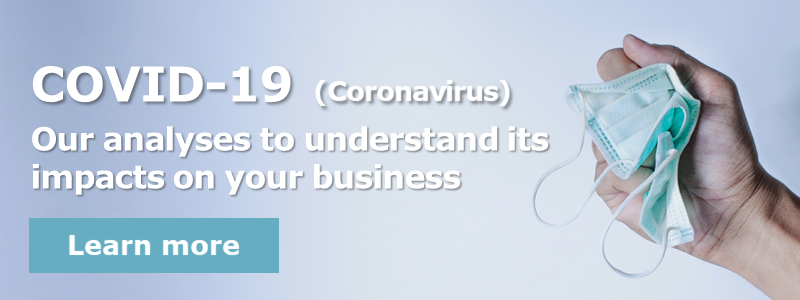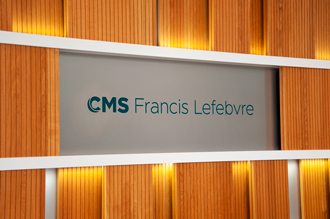With outbreaks multiplying around the world, especially in Europe where France is now the second most-affected country, on Friday 28 February, the DGT published a Q&A on what steps to take, aimed at both employers and employees. Presentation of the DGT’s main recommendations.
Adjustments to the workplace and working conditions
The DGT emphasises that given its obligation to ensure the health and safety of employees in its company, the employer must defer non-essential employee travel to at-risk areas, a list of which is regularly updated by the government on its dedicated website: gouvernement.fr/info-coronavirus.
The DGT also recommends implementing a number of measures for employees returning from at-risk areas, or who have been in contact with infected people, during the 14 days following their return. It may be a question of adopting teleworking when the employee’s role allows it. Otherwise, the employer must ensure that the employee is not in contact with vulnerable people, only attends essential meetings and avoids close contact (canteens, lifts, etc.).
Although, as mentioned in the DGT document, the epidemic risk may justify the use of teleworking without the employee’s agreement, it would appear preferable at this stage to obtain the employee's explicit agreement given the difficulty for the employer of assessing whether or not there is a threat of an epidemic.
Other solutions recommended by the DGT include the possibility for the employer of moving leave already booked by the employee for another period to cover the 14 days. However, it cannot impose leave on the employee that has not already been booked. It can also allocate those days as rest days (JR – jours de repos) or working time reduction days (JRTTs – jours de réduction du temps de travail) if the collective agreement establishing them leaves them to the employer’s discretion.
Suspension of the employment contract
In the event that the workstation cannot be adapted to limit contact and if teleworking is not compatible with the activity, the employee may stay at his home:
- if the employee or their child (CNAM circular, 19 February 2020) is subject to isolation, exclusion or home care assistance measures for which a doctor from the regional health agency (ARS – agence régionale de santé) has issued a medical certificate; the employee receives daily social security allowances (IJSS – indemnités journalières de sécurité sociale), without application of the three-day waiting period and even if they do not meet the eligibility conditions, for a maximum period of 20 days. These measures, instituted by Decree no. 2020-73 of 31 January 2020, are applicable from 1 February to 31 March 2020;
- if the employer asks the employee to stay at home and they do not have a medical certificate issued by the ARS doctor, their earnings are maintained and the period of absence, treated as effective working time, gives them entitlement to the same rights as employees present in the company.
Reduction or increase in working hours
The Q&A specifies that the current health crisis constitutes an exceptional circumstance authorising the employer to implement the short-time working mechanism. The following situations are therefore eligible for a short-time working request: the administrative closure of an establishment, the ban on public demonstrations following an administrative decision, the mass absence of employees essential to the company’s activity, the temporary interruption of non-essential activities, the suspension of public transport by an administrative decision, a decrease in activity linked to the epidemic.
This mechanism allows employees who experience a loss of salary due to the temporary closure of the establishment or a reduction in working time to less than their usual hours, to receive compensation paid by the employer, corresponding to 70% of their previous gross earnings (increased to 100% if they are receiving training during that period). The employer can then request partial reimbursement from the government. The short-time working request must be submitted to the Prefecture prior to placing employees on short-time working.
The refusal or authorisation decision is notified to the employer within 15 days of receipt of the request.
It is also recalled that it is possible, under certain circumstances, to derogate from maximum working hours and rest periods in emergency situations, for limited periods and after informing the labour inspectorate.
Other details
The Q&A specifies that in a crisis situation, the exercise of the right of withdrawal by an employee is significantly limited provided the employer has taken the necessary prevention and protection measures, in accordance with government recommendations (gouvernement.fr/info-coronavirus). The conditions for exercising this right only authorise employees to withdraw from a work situation if they have reasonable grounds to believe that it presents a serious and imminent danger to their life or health. The document emphasises that in the event of wrongful exercise of the right of withdrawal, the employer may apply a deduction to the employee’s salary corresponding to the period not worked and initiate dismissal proceedings. Finally, the Q&A points out that the social and economic committee (CSE – comité social et économique) must be consulted before any measure significantly amending the organisation of work, use of short-time working or exemptions to rules concerning the length of working hours and rest periods. It may also:
- meet at the justified request of two of its members for subjects concerning health, safety or working conditions;
- or exercise its right of alert if any of its members identifies the existence of a situation of serious and imminent danger. The employer shall then immediately investigate.
The ministry’s Q&A can be found on its website here.
Report: impacts of Covid-19 (Coronavirus)
Our law firm offers you its legal assistance to address all the impacts of Covid-19 (Coronavirus) on your business. Read our dedicated report below.
For more information on our law firm:
Our law firm is a leading international business law firm. Its deep roots, unique positioning and highly recognised expertise enables it to deliver innovative, high value-added solutions in all areas of the law.










.jpg?v=1)


Social Media cookies collect information about you sharing information from our website via social media tools, or analytics to understand your browsing between social media tools or our Social Media campaigns and our own websites. We do this to optimise the mix of channels to provide you with our content. Details concerning the tools in use are in our privacy policy.